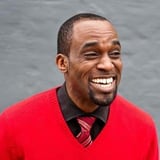Summary
This pandemic was a season of healing for me,” was something Luz Bractcher never thought she’d say. Yet despite the devastation caused by shared global trauma, Luz discovered that the very life changes she faced as a result of lockdowns and physical distancing also allowed her an opportunity to address her mental, emotional, and creative health needs. In this session, Luz shares her personal story of entering the pandemic in a state of burnout and how the season of isolation redefined the way she invited herself and her community into restful creativity. As the risks of COVID diminish, and we tentatively reintegrate into the real world, this presentation focuses on 3 things to explore moving forward: Prioritizing rest as a way to resist hustle culture and toxic capitalism How our definition of “enough” directly impacts our approach to mental and emotional health in the workforce How to encourage creative play into your work as a way to cultivate connection.
Key Insights
-
•
Rest is a human right and essential for creativity, problem-solving, and well-being.
-
•
The cultural lies we live by—lack of time to rest, self-worth tied to busyness, and perpetual scarcity—harm creatives deeply.
-
•
Intentional rituals and grounding can protect energy and create sustainable work rhythms.
-
•
Taking a nap improves creativity, problem-solving ability, and presence, yet is rarely normalized in work culture.
-
•
Busyness is often glorified as a sign of worth, which dehumanizes workers and disconnects them from their being.
-
•
Enoughness, or recognizing when you have sufficient resources (time, energy, money), fosters gratitude, abundance, and sustainable creativity.
-
•
Workplaces that allow rest and slower rhythms can actually increase productivity and creativity, as evidenced by companies like the weighted blanket company that limits work hours.
-
•
The relentless push for more—more features, more output, more hustle—is a scarcity mindset that leads to burnout and loss of inner peace.
-
•
Creating space for rest in teams includes blocking meeting time, encouraging camera-off moments, and normalizing breaks and naps.
-
•
Advocating for rest and enoughness requires first honoring your own limits and then modeling restful behaviors for others.
Notable Quotes
"If you get anything from this talk, please let it be take a nap."
"More is not the same as growth and more is not the same as enough."
"Rest is a human right and not a privilege."
"Busyness dehumanizes us when we tie our worth only to what we produce."
"The frenzy of our activism neutralizes our work of peace and destroys the root of inner wisdom."
"I am what I do is a muscle memory that is really hard to undo."
"What if your value is measured by your being and not by your output?"
"There’s no map or measure of what is good enough in hustle culture."
"Creating time to do nothing is creating runway to tackle the next thing."
"Invite people to rest by creating space that says you don’t have to do anything to be known and loved."
Or choose a question:
















More Videos

"When you market UX research, you prove and show your value, make your company smarter by your insights, and create advocates."
Molly FargotsteinMultipurpose Communication & UX Research Marketing
September 12, 2019

"Designers can only produce their best work if we understand and meet their unique motivations and reward systems."
Dave MaloufClosing Keynote: Amplify. Not Optimize.
October 24, 2019

"Thinking is something that happens as the brain interacts with the world, not just inside our heads."
Jorge ArangoAI as Thought Partner: How to Use LLMs to Transform Your Notes (3rd of 3 seminars)
May 3, 2024

"Human beings understand graphical user interfaces as composed of objects and actions—this grammar is key to AI design."
Daniel J. RosenbergDesigning with and for Artificial Intelligence
August 11, 2022

"We’ve been taught to build fast and break things, and we often play accessibility on the back burner."
Alexis LucioScaling Accessibility Through Design Systems
June 9, 2022

"I took roughly three months to get the first shareable version of the roadmap, including onboarding and interviews."
Peter BoersmaHow to Define and Maintain a DesignOps Roadmap
October 3, 2023

"White space risk is about the surprises that happen between organizational boundaries and roles."
Ben Reason Aline Horta Majid Iqbal Fabiano LeoniMaking the system visible: The fastest path to better decisions
November 20, 2025

"If you don’t jump in and learn, you’ll spend your time reading stuff on it and not really understand the tech."
Peter Van Dijck Louis RosenfeldCoffee with Lou #4: Taking a Peek Under the Rosenbot's Hood
June 14, 2024

"In a remote environment, building authentic, deep relationships with stakeholders is a key skill for researchers."
Taylor KlassmanShaping the Next Era of UX Research: Collaborative Forum
March 11, 2025
















